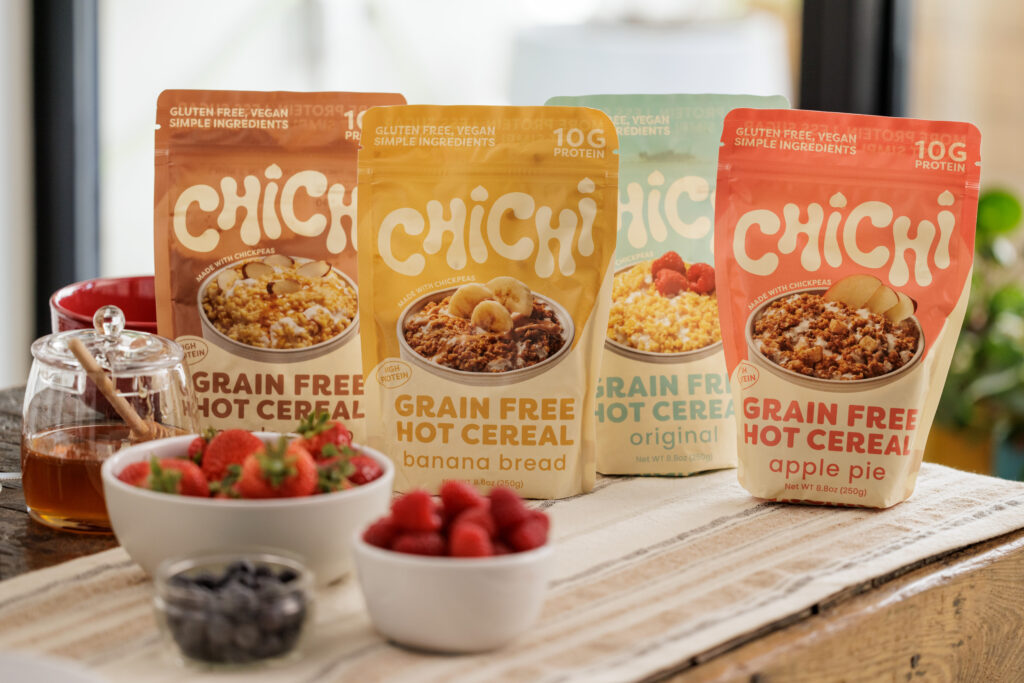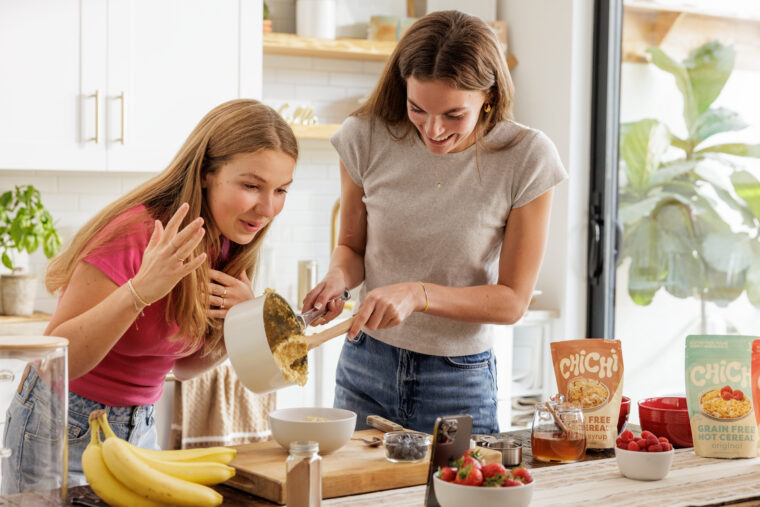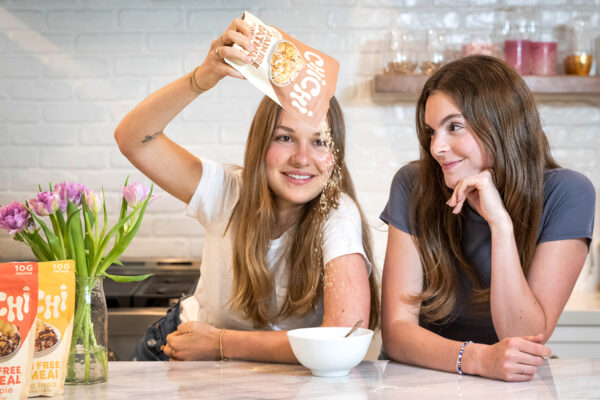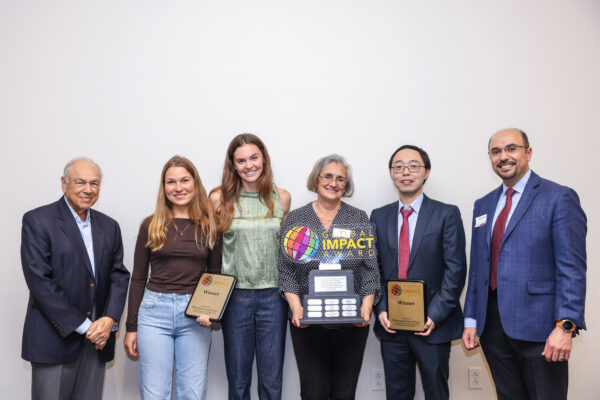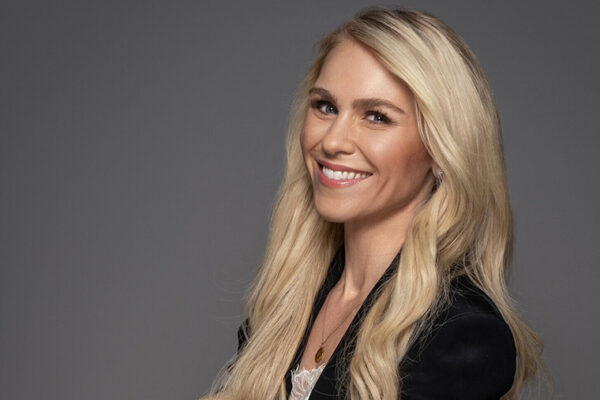Chickpeas are having a moment. Today’s health-conscious consumer can buy chickpea flour, chickpea pizza crust, chickpea pasta. But chickpeas for breakfast?
Absolutely, say WashU’s Chiara Munzi, AB ’23, and Izzy Gorton, Olin Class of ’25. Munzi and Gorton are the founders of ChiChi hot cereal, a high-protein, low-sugar alternative to oatmeal. Available online and in stores in St. Louis and Los Angeles, ChiChi comes in four varieties: apple pie, banana bread, maple syrup and original.
“ChiChi is healthy, and it’s super delicious,” says Gorton, a senior studying economics and strategy at Olin Business School. “We have tons of subscribers and repeat customers who are coming back for our taste and our texture.”
Munzi and Gorton launched ChiChi two years ago as classmates in an advanced entrepreneurship course nicknamed “The League.” The selective program provides students resources, including $4,000, and professional mentorship to start a small business. Munzi, then a senior, had enrolled to develop a thrifting app. Gorton, a thrifter herself, was assigned to support the project. But a few weeks later, Munzi showed up with a container of chickpea flakes and a new game plan. Gorton was flummoxed.
“Then I tried it,” Gorton recalls. “I immediately saw the vision. Oatmeal is mushy and liquid, but this was something hearty and nutty, really delicious.”
Munzi had been eating an oatmeal mixture for two years and then segued to a “straight-up chickpea mixture” the summer before her senior year. For about two months she’d mashed chickpeas, rolling out the beans with a rolling pin in her dorm room. She found the flavor pleasingly neutral, the perfect base for fruits or honey. And unlike instant oatmeal, chickpeas delivered the protein she needed for her daily runs without spiking her blood sugar.
Using the startup grant from The League, the two developed recipes to test with their focus group — Gorton’s teammates on the WashU Bears track and cross country teams.
“I would bring samples to the track, and everyone loved it,” Gorton says. “A lot of runners, especially those who are vegan, struggle finding good protein options. So ChiChi was super exciting for them because it’s high in protein but not overly processed like a lot of protein powders.”
Serious athletes are not the only ones digging in. Customers with diabetes and gluten sensitivities also love ChiChi, which is grain-free, gluten-free and low glycemic.
And then there are those who discovered ChiChi on Instagram. Delightful and candid, the feed pulls back the curtain on life as two young founders. One video reveals how they almost went broke. Another shadows them at their first trade show. And yet another chronicles a day at WashU when ChiChi won the Global Impact Award from the Skandalaris Center for Interdisciplinary Innovation and Entrepreneurship, earning $50,000.
“[During the awards ceremony,] there was a tornado warning, so we all had to go to the basement,” Munzi recounts in one video as the camera pans to a bug-eyed Gorton. “And we were standing in the back because we did not expect to win. So, when they called ChiChi, we literally screamed. It was insane.”
Neither founder expected this life of recipe development, customer education, ad spends and trademark law when they enrolled at WashU. Munzi, raised in Los Angeles, planned to be a neuroscience researcher and, indeed, graduated with a bachelor’s degree in philosophy-neuroscience-psychology from Arts & Sciences. And Gorton, from Dubuque, Iowa, wanted to be a doctor. Both credit the Skandalaris Center for helping them discover their inner maker. Founded in 2001, the center supports entrepreneurs and innovators through a range of courses, funding opportunities and clubs open to all students.
“I honestly don’t think we asked permission to use the Skandalaris Center as our test kitchen,” Munzi says. “We just plugged in our Instant Pot and got to work. And they supported us every step of the way.”
The founders hope to pay that forward, providing internships and mentorship to the next generation of WashU entrepreneurs, especially other young women.
“When people ask, ‘What is your mission?’ my answer is ‘to make breakfast healthier,’” Munzi says. “But I also want younger female founders to look at Izzy and me and see that they can bring their ideas to market. We weren’t special; we didn’t have special skills or investors; we just kind of did it. And they can, too.”
